Capital Gains Tax Accountant | Fremantle Nedlands Perth
Navigating Capital Gains Tax (CGT) when inheriting a house can be confusing. This Questions & Answers resource aims to simplify the complexities of capital gains tax, offering insights into maximising exemptions, utilising concessions, and understanding the rules surrounding Capital Gains Tax on the sale of inherited houses.
The deceased’s main residence is usually one of their greatest assets, which they give to their beneficiaries when they pass away. Yet, inheriting a house isn’t just about sentimentality, it also comes with the challenge of grappling with Capital Gains Tax implications. By understanding what you need to know about Capital Gains Tax, you can make informed decisions about what to do with the property.
What is Capital Gains Tax, and how does it apply to an inherited house?
Capital Gains Tax (CGT) is a tax on the profit made from the sale of an asset, including a house. When inheriting a house, CGT implications depend on various factors, such as when the house was acquired, the timing of the sale, the tax residency of the deceased, and whether the property was used as their main residence.
Do you pay capital gains tax when you inherit a house that was the deceased’s main residence?
Capital gains tax is not payable at the time of inheritance due to Capital Gains Tax roll-over relief on death. However, potential capital gain tax may arise if the inherited house is sold during the estate administration or after the finalisation of the estate. Generally, the capital gain can be reduced or even eliminated if the house is sold and settled within two years from the date of death or used as the main residence of the deceased’s spouse or the individual who has the right to live in the house from the date of death until the individual’s ownership interest in the house ends.
Is there a capital gains tax on the sale of an inherited house?
The answer depends on when the house is sold, whether it was a pre-CGT or post-CGT asset, whether it was used for income producing, and whether the deceased was an Australian tax resident just before passing away.
A post-CGT asset is an asset that is acquired on and from 20 September 1985, which is the date when the Capital Gains Tax was introduced in Australia. A pre-CGT asset refers to an asset that was acquired prior to 20 September 1985.
For post-CGT inherited houses, no capital gains tax is payable if:
- The house was used as the deceased’s main residence just before death;
- It was not used to produce income just before the deceased’s death; and
- The sale and settlement occur within two years of the deceased’s death;
or
- The property was the main residence of the spouse or individuals who had a right to live in the house under the deceased’s will, from the death of the deceased until the ownership interest ends.
In the case of a pre-CGT house, no capital gains tax is payable if:
- The house was sold and settled within two years of the deceased’s death; or
- The property was the main residence of the spouse or individuals who had a right to live in the house under the deceased’s will, from the death of the deceased until the ownership interest ends.
The requirement that the house be the deceased’s main residence and not income-producing just before death means the prior income-producing use of the property is disregarded. It is crucial to note that the requirement that the house be the deceased’s main residence and not for producing income does not apply to pre-CGT houses. This means the capital gain on a pre-CGT house can be disregarded even though it was rented when the deceased passed away.
Renting a post-CGT house during the two-year period will not impact the eligibility for the principal residence exemption. This is because the exemption only looks at the use of the main residence just before death. The ATO TD 1999/70 also confirms that the partial exemption rule under s 118-190, which increases capital gains or capital losses if the house is used for income producing does not remove the exemption for disposal within 2 years rule under s 118-195. However, the ATO ID 1999/70 does not mention whether this interpretation applies to pre-CGT houses.
Can the capital gain on the sale of the house be disregarded if the deceased was not using the house as a main residence just before passing away?
Capital gain on a post-CGT house can still be disregarded even if the deceased was not living in the house just before their death. The full main residence exemption can be claimed by applying the absence rule, which allows the house to continue being treated as the deceased’s main residence. The exemption does not require the deceased to live on the property. It only requires the property to be treated as the deceased’s main residence.
It is important to note that making this choice means no other property can be treated as a main residence. The choice is made when the relevant income year tax return is lodged. When this choice is made, the cost base of the house will be the cost base of the deceased on the date of death instead of the market value on death.
Can the capital gain be disregarded if the deceased’s house was rented just before their death?
To claim the main residence exemption for a post-CGT house, the house must be the deceased’s main residence and not used for income-producing purposes just before death. If the house was rented just before death, a partial exemption can be claimed on the capital gain. If the house is a pre-CGT house and it was sold within 2 years, then the sale is fully exempt from CGT.
Can capital gain still be disregarded if the deceased’s house was sold after the 2 years time limit?
The ATO’s safe harbour in PCG 2019/5 allows taxpayers to self-assess their eligibility for an extension if the house is sold and settled within 18 months after the initial 2 years period following the deceased’s date of death. This gives the taxpayer a further 18 months if the house cannot be sold within two years after the deceased’s date of death. If the taxpayer has exceeded the 18 months after the end of 2 years, it does not necessarily mean the taxpayer will not qualify for the extension. Instead, they will need to lodge a private binding ruling application with the ATO requesting an extension.
Generally, the acceptable delays are legal challenges to the ownership of the dwelling or the will, delays due to life tenancy on the property, the estate was complex, COVID-19 restrictions and other reasons beyond the taxpayer’s control. Once the delay has been resolved, the house must be listed for sale as soon as practicable, and the sale must be finalised within 12 months after being listed for sale. Delays due to renovations, inconvenience, or waiting for the market price to increase, or unexplained reasons are not acceptable grounds for the extension.
Is there a capital gain tax on the sale of a deceased’s house that has been occupied by the deceased’s spouse or a person who has the right to occupy the house under the will?
The capital gain on the sale of the deceased house is disregarded if it is used as the main residence of the deceased’s spouse or an individual who had the right to occupy the house under the deceased’s will. The exemption requires the property to be used as a main residence from the deceased’s death until the relevant individual’s ownership interest ends, which is the settlement date.
Even if the individual with the right to live in the house has moved out, the individual can choose to continue treating the house as the beneficiary’s main residence after moving out. The house can also be rented out for up to six years. However, if this choice is made, no other house can be treated as the main residence because only one house can be elected as the main residence at a time.
Is there a capital gains tax if I sold the inherited house after two years and the house was not used as the main residence of the spouse or a person who has the right to live under the will?
Generally, capital gains tax is payable. However, a partial main residence exemption can be claimed if the house has ever been used as the main residence. The partial exemption calculation depends on whether the house is a pre-CGT or post-CGT asset.
If the house is a pre-CGT asset, the capital growth of the house since the deceased’s death would be partially subject to capital gains tax.
If the house is a post-CGT asset, the capital gains tax will be calculated based on the capital growth of the house since its acquisition date by the deceased until the beneficiary’s ownership ends.
Can main residence exemption be claimed for a deceased who was not an Australian Tax Resident when they passed away?
Generally, capital gains tax is payable on the sale of the deceased’s house if the deceased was a foreign resident when they passed away. However, a foreign resident may claim a full or partial main resident exemption if they have resided outside Australia for six years or less and have experienced a life event such as a death or a terminal sickness in the family.
Determining tax residency can be complex and subjective, as it depends on multiple factors, and there is no bright line test. An incorrect tax residency assessment can have severe consequences on capital gains tax outcomes. It is crucial to ensure accurate tax residency assessment to avoid adverse implications on capital gains tax.
What are the capital gains tax implications for the sale of a deceased person’s house acquired through a chain of deceased estates?
The complication of inheriting a house that has passed through a chain of a deceased estate is that the capital gains tax must be adjusted for a partial main residence exemption that takes into account the non-main residence periods during both prior and current inheritances.
In the case of a post-CGT house, this adjustment is not required if the property would have qualified as the deceased’s main residence at the time of death and was not used to produce income just before the death.
However, accurately applying capital gains tax requires a thorough review of how the house has passed through the chain of deceased estates and whether the property qualifies for a full main residence exemption in each inheritance.
Capital gains tax involves complex interactions between special rules, exemptions, and concessions in the Capital Gains Tax Legislation. It is advisable to seek a thorough assessment and precise interpretation of the capital gains tax legislation to ensure accurate application, especially in cases involving property sales where the gain can be significant. Please contact us if you would like to discuss your capital gains tax or tax on a deceased estate. We offer a complimentary 30-minute consultation.
The information provided in this article is intended for general informational purposes only and does not constitute legal or professional advice. This article is based on the current tax laws at the time of writing, and the interpretation of specific provisions may vary depending on individual circumstances. It is crucial to consult with a qualified tax professional or legal advisor to obtain accurate and current advice tailored to your specific situation. Any reliance on the information presented in this context is at your own risk, and we disclaim any liability for actions taken or not taken based on the content provided. Always seek professional advice before making decisions related to tax matters.





